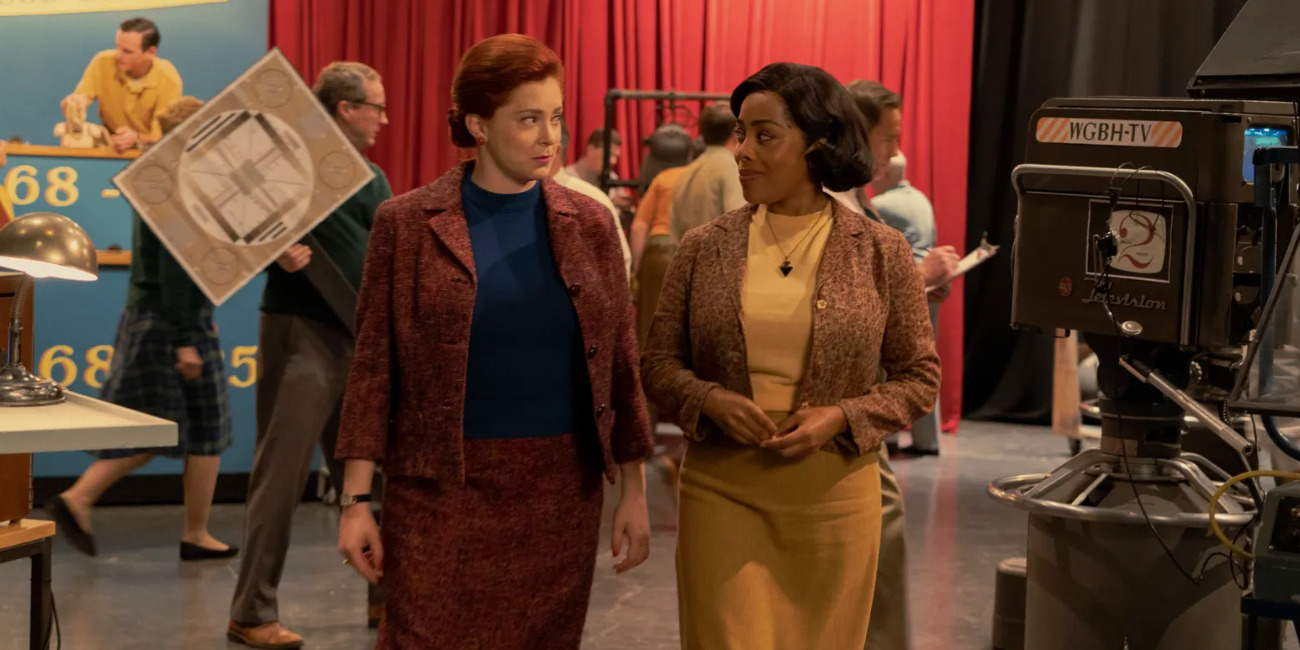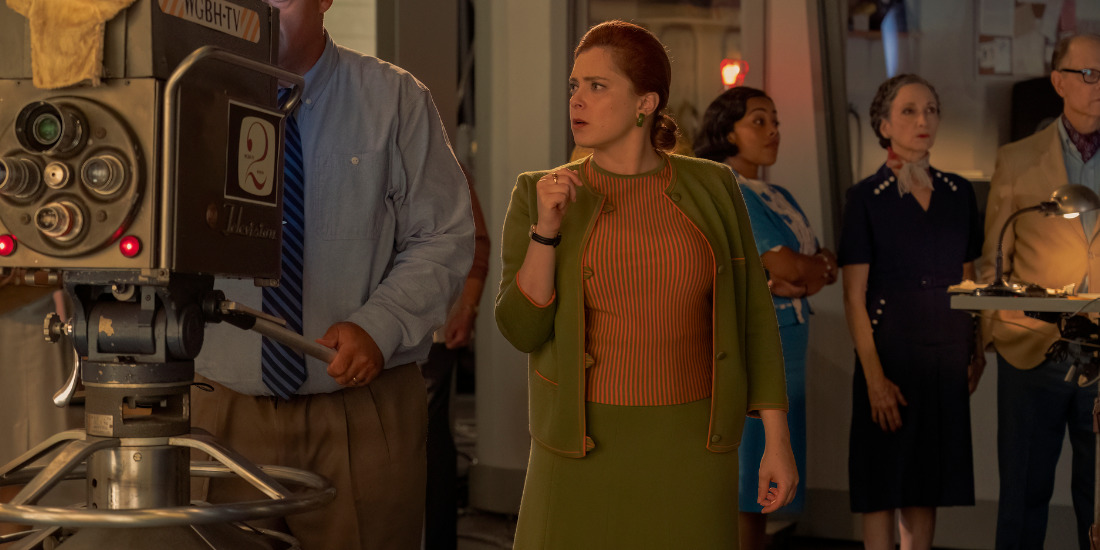Max’s ‘Julia’ presents a dramatized account of Julia Child and her pioneering career as a Celebrity Chef, recognized across America for her charm and talents. As the show embarks on its second season, so does Julia fittingly tackle another season of her cooking show, ‘The French Chef,’ which has grown into a countrywide phenomenon, attracting a large audience. As a result, the show’s head producer, Alice Naman, pulls a few strings and manages to get a big-time director, Elaine Levitch, on board.
Although Elaine’s addition to the production’s family promises great things for ‘The French Chef’ and its future, it doesn’t come without its fallbacks. Consequently, while others like Alice bond with the former CBS director and collaborate productively with her, the star of the show, Julia, finds herself off to a rocky start with the other woman. Therefore, Elaine’s storyline brings something new to the narrative and contributes significantly to Julia’s career. However, how much of that storyline is actually based on reality?
Elaine Levitch: The New Director
‘Julia’ is a biographical drama that mines inspiration from the real-life culinary icon Julia Child. As a result, more often than not, the characters depicted within the show end up being fictionalized versions of real-life individuals. Nevertheless, the show doesn’t shy away from equipping its creative liberties and introducing fictional elements to its narrative. Thus, with little connection to the real life of Julia Child, Elaine Levitch remains a fictionalized element.

Elaine’s career as a director, especially as a woman in a male-dominated industry during the 1960s, presents her defining feature as a character. Though most of her past continues to be shrouded in mystery during the season’s first half, the woman has an impressive portfolio due to her employment at CBS. Therefore, recognizing the irreplaceable value she could bring to the table, Alice invites her to join Julia’s team.
While the instance becomes a significant moment in ‘The French Chef’ production within the Max show, such an occurrence likely never occurred in real life. Although Julia Child is recognized as a feminist icon, given her contribution to female TV representation, there is no record of the Chef having a female director throughout her cooking show’s lifetime. Repeatedly, names like Russell Morash and David Atwood come up alongside other male directors. Yet, no female directors can be found credited for their contribution to ‘The French Chef.’
For the same reason, it’s likely that Elaine Levitch was crafted without any traces of real life. In fact, when discussing her character, the show’s creator, Daniel Goldfarb, said, “We named her Elaine, inspired by [comedian/filmmaker] Elaine May. Rachel [Bloom] luckily was a fan of the show and wanted to be a part of it, and we got her, and she’s just so dynamic and has such charisma.”
As such, Elaine’s character remains a fictional addition to ‘Julia’s’ expanding universe. Nevertheless, the character helps highlight a crucial aspect of reality by bringing a rare aspect of Julia’s character to the forefront. “Julia was a trailblazing feminist, but she also had some old-fashioned ideas about women, and we wanted to dramatize that dichotomy and that complexity,” said Goldfarb. Consequently, Julia’s initial negative feelings toward Elaine’s leadership over her show showcase the complicated socio-political environment of the time where gender bias managed to affect even those contesting against it.
Furthermore, through Elaine’s addition as a contributor to ‘The French Chef’ from behind the camera, ‘Julia’ also portrays the real-life situation at GBH when the show was in production. According to the creator’s research, in real life, near ‘The French Chef’s’ end, women made up 75% of the people working on the show.
Thus, including Elaine’s voice in the mix allows the show to introduce more female perspectives and showcase a more diverse account of the female experience in professional spaces during the 60s. Ultimately, even though Elaine’s character remains confined to her fictionality, many of the storylines and themes that her character allows the show to explore are rooted in reality.
Read More: Julia: Is Stanley Lipschitz Based on an Actual Havard Professor?


You must be logged in to post a comment.